TMS Therapy vs ECT: Compassionate Options for Your Depression Recovery Journey





BREAKTHROUGH TECHNOLOGY
Discovering Hope Through TMS Therapy for Depression
Transcranial Magnetic Stimulation represents an innovative, gentle approach to treating major depressive disorder and other mental health conditions.
-
Covered by Insurance
-
FDA Approved
-
Covered by Insurance
-
FDA Approved
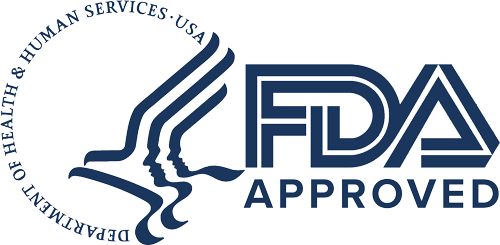
TAKE THE FIRST STEP TODAY
TMS Covered by Major Insurance Companies
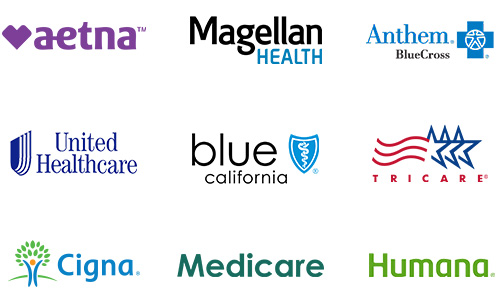
RESPONSE RATES
TMS Versus Medication
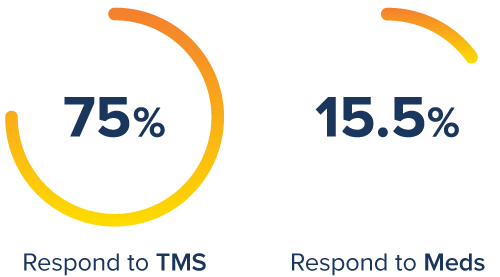
NEUROPLASTICITY
Brain Activity Increased with TMS
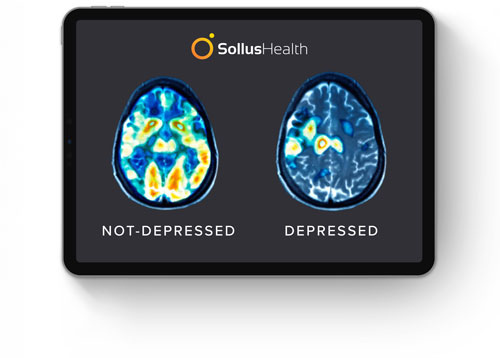
Proudly Serving San Diego Carlsbad Encinitas Oceanside San Marcos Vista
Break free from depression
Our team is here to guide you through a personalized journey to reclaim your mental health and regain control of your life.






When facing treatment-resistant depression, understanding the different non-medication options available can be life-changing. Two brain stimulation therapies - Transcranial Magnetic Stimulation (TMS) and Electroconvulsive Therapy (ECT) - offer hope for those struggling with persistent mental health conditions. While both treatments can be effective, they differ significantly in approach, experience, and side effects. This comparison explores why TMS therapy has become the preferred first-line brain stimulation treatment for many individuals seeking relief from depression.
Take the first step toward mental clarity and see how TMS therapy for OCD can break the cycle of intrusive thoughts without medication side effects.
This non-invasive procedure has gained recognition for its effectiveness in addressing depression symptoms without the need for medication or hospitalization. TMS uses precisely targeted magnetic pulses to stimulate specific brain regions associated with mood regulation:
The Gentle Science of TMS: How Magnetic Pulses Restore Balance
During TMS treatment, a specialized device delivers magnetic pulses to the prefrontal cortex of the brain, an area often showing decreased activity in people with depression. These magnetic stimulation sessions activate neurons, promoting healthier brain function and communication between different brain structures. The procedure takes approximately 20-40 minutes per session, with patients remaining awake throughout the treatment and able to resume normal activities immediately afterward. Many patients describe the sensation as a gentle tapping feeling, making it comfortable and easy to tolerate.
Find mental wellness clarity through our comprehensive consultation process, weighing the benefits and drawbacks of TMS with a team that truly understands your unique depression experience.
Breakthrough Results: TMS Success Stories and Outcomes
TMS therapy shows remarkable results for patients with treatment-resistant depression. Many patients experience significant improvement in their depressive symptoms, with some achieving complete remission after a full course of treatment. Patients typically notice several key improvements throughout their TMS treatment journey:
- Improved Sleep: Many patients report falling asleep more easily and experiencing more restful sleep within the first few weeks of treatment.
- Increased Energy: A common early response to TMS is renewed energy and motivation to engage in daily activities.
- Enhanced Concentration: Patients often notice improved focus and mental clarity as treatment progresses.
- Stabilized Mood: The reduction in mood swings and negative thought patterns is frequently reported by those undergoing TMS therapy.
- Reduced Anxiety: Many patients experience a parallel reduction in anxiety symptoms alongside depression relief.
These improvements, combined with the absence of systemic side effects like weight gain or sexual dysfunction, make TMS an especially valuable option for those who haven't responded to or cannot tolerate antidepressant medications.
Peace of Mind: The Comfort and Safety of TMS Treatment
TMS therapy is known for its exceptional safety profile and minimal side effects. The most common effects include mild scalp discomfort at the stimulation site and occasional headaches that typically diminish after the first few sessions. Unlike more invasive procedures, TMS doesn't require anesthesia, hospitalization, or recovery time. The non-sedating nature of TMS means patients can drive themselves to and from appointments and maintain their daily routines without disruption. This makes TMS an ideal option for professionals, parents, and anyone who needs to maintain their responsibilities while seeking depression treatment.
Understanding ECT: A More Intensive Option in Depression Care
Electroconvulsive therapy is typically reserved for severe cases of depression when rapid intervention is needed. ECT has improved considerably from historical versions but remains a more intensive procedure:
ECT: A Hospital-Based Procedure
This procedure typically involves controlled electrical currents delivered to the brain while the patient is under general anesthesia. ECT induces a brief seizure that affects brain chemistry. Each session requires a hospital visit, pre-procedure fasting, anesthesia, and post-procedure monitoring. While the actual treatment lasts only minutes, the hospital stay often takes several hours, creating significant disruption to daily schedules and requiring assistance with transportation.
When ECT Might Be Considered: Severe Depression Circumstances
ECT may be recommended in specific situations, such as when patients experience severe suicidal ideation requiring immediate intervention, or when depression includes psychotic features. For most patients with treatment-resistant depression, however, traditional TMS offers a gentler, equally effective alternative without the need for anesthesia or hospital visits.
Recovery Considerations: Understanding ECT Effects
The potential side effects can be more significant with ECT than with TMS. Patients commonly experience confusion, disorientation, and memory issues after each treatment. These cognitive side effects can persist for weeks or months, with some patients reporting permanent gaps in memory. Recovery after each ECT session takes time, and patients cannot drive themselves or return to work immediately, requiring significant lifestyle adjustments during the treatment course.
Finding Your Path: Why Many Choose TMS Therapy Over ECT
When considering options for treatment-resistant depression, several factors lead many patients and psychiatrists to prefer traditional or deep TMS as the first-line brain stimulation treatment:
Investment in Healing: Accessibility and Insurance Support
Insurance coverage for TMS has improved significantly in recent years, with many major providers now covering treatment for patients with documented treatment-resistant depression. While both TMS and ECT may be covered by insurance plans, including Medicare, TMS often represents a more accessible option with fewer associated costs such as hospital fees, anesthesia, and recovery care.
Your Daily Life: Maintaining Normalcy During Treatment
One of the most significant advantages of TMS over ECT is its minimal disruption to daily life. TMS therapy seamlessly integrates into patients' existing routines with several practical benefits:
- No Driving Restrictions: Patients can safely drive themselves to and from TMS appointments without needing to arrange transportation.
- Work Compatibility: Many patients schedule TMS sessions before or after work hours, maintaining their professional responsibilities throughout treatment.
- Family Responsibilities: Parents and caregivers can continue their daily family duties without interruption during the TMS treatment course.
- Convenient Scheduling: Sessions are typically scheduled at consistent times, similar to therapy appointments, allowing for predictable planning.
- No Recovery Time: Unlike ECT, TMS requires no post-treatment recovery period, allowing patients to immediately resume their normal activities.
The ability to maintain normal life activities while receiving treatment reduces additional stress and makes the healing journey more manageable for patients seeking depression relief.
Personalized Healing: Finding the Right Approach
For most patients seeking non-medication treatment for major or seasonal depression, TMS offers an ideal combination of effectiveness and gentleness. TMS may be particularly appropriate for patients with moderate to severe treatment-resistant depression who wish to avoid anesthesia, hospitalization, and cognitive side effects. For those experiencing severe, life-threatening depression symptoms, psychiatrists may consider ECT, but increasingly, TMS is becoming the preferred first option in the treatment progression.
Sollus Health: Your Compassionate Partner in TMS Therapy and Mental Wellness
At Sollus Health, we understand the value of finding effective treatment for depression and other mental health conditions. Our clinic specializes in providing advanced TMS therapy in a supportive, compassionate environment designed for healing. Located in Carlsbad, our team of board-certified psychiatrists and carefully selected technicians deliver personalized care using state-of-the-art equipment, including the highest-rated Apollo TMS chair.
We serve North County San Diego with a commitment to non-invasive mental health treatments that offer lasting relief without medication side effects. Our serene setting, complete with botanical gardens and thoughtfully designed treatment rooms, creates a peaceful atmosphere for recovery. For those struggling with treatment-resistant depression, anxiety, PTSD, or OCD, we provide expert guidance through every step of the TMS journey, from initial consultation to personalized treatment planning and ongoing support.
Break free from depression's grip and reclaim your joy - call us at 619-649-6658 today to schedule your complimentary consultation and discover how our personalized TMS therapy approach can transform your mental health journey.
COMPASSION. HOPE. ACTION
Conditions We Treat
Sollus Health offers effective, non-invasive treatment for conditions like depression, OCD, PTSD, and anxiety.
Frequently Asked Questions

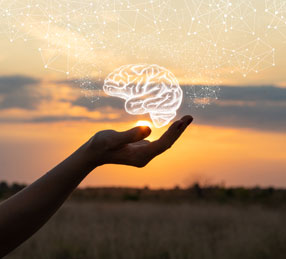

TMS and ECT can both be effective for depression, though they work differently and may be appropriate for different situations. While ECT may produce faster results in certain severe cases, TMS offers comparable effectiveness for most patients with depression without the cognitive side effects or need for anesthesia.
ECT may not be appropriate for patients with certain medical conditions such as recent heart attack, brain tumors, or increased intracranial pressure. Patients who wish to avoid anesthesia, memory issues, or hospital visits might prefer to explore TMS as a gentler alternative that doesn't require sedation.
TAKE THE FIRST STEP TODAY
A Simple Process to Begin Your TMS Journey
Take the first step toward lasting relief from depression with TMS therapy, a non-invasive, medication-free treatment designed to restore your well-being.
Break free from depression
Our team is here to guide you through a personalized journey to reclaim your mental health and regain control of your life.

BREAKTHROUGH TECHNOLOGY
Latest News and TMS Innovation
Discover the latest breakthroughs in TMS technology. Our innovative advancements enhance precision and effectiveness, bringing hope to more patients in San Diego.